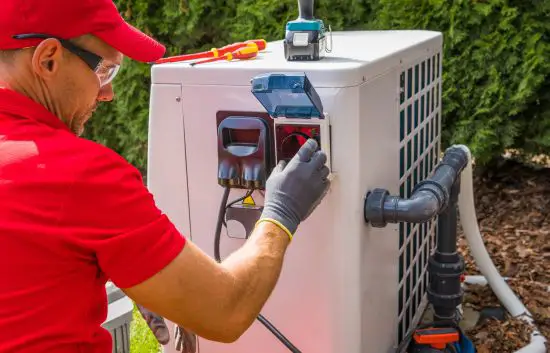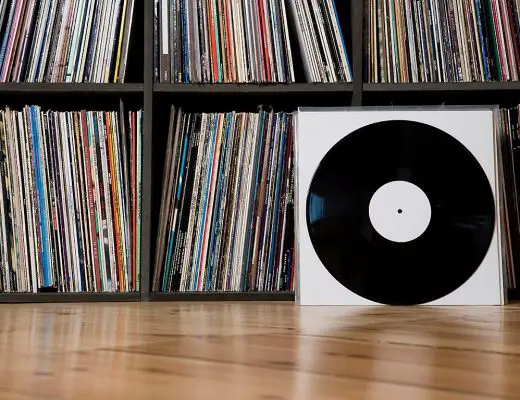
CommonCentsMom.com is advertiser-supported: we may earn compensation from the products and offers mentioned in this article. However, any expressed opinions are our own and aren't influenced by compensation. The contents of the CommonCentsMom.com website, such as text, graphics, images, and other material contained on this site (“Content”) are for informational purposes only. The Content is not intended to be a substitute for professional financial or legal advice. Always seek the advice of your Financial Advisor, CPA and Lawyer with any questions you may have regarding your situation. Never disregard professional advice or delay in seeking it because of something you have read on this website!
The very definition of happiness is a warm pool, but during the winter season, heating up the swimming pool water can be expensive. That is why efficiency should always be at the top of the list when deciding to buy a pool heater. Different types of pool heaters heat pools in distinctive ways that may require other cost considerations and maintenance requirements.
Therefore, it makes sense to understand the distinctions between heat pumps and pool heaters, weigh the benefits of each, and rightfully advise pool owners on the most efficient pool heating method. If you’re one a pool owner, this article will provide that needed information.
Heat Pump vs. Pool Heater: What’s the Difference?
Most pool owners heat their pools with either a heat pump or a pool heater. The main distinction between the two systems is that whereas a heat pump warms the water using the surrounding air, a pool heater employs a heating element made of copper or nickel. Therefore, whether driven by gas or electricity, heat pumps trump pool heaters in every efficiency metric.
Heat pumps used for heating pool water are similar to the air-source heat pumps used for homes.
Consider more dissimilarities between heat pumps and pool heaters:
- Heat pumps are less effective in extreme cold since absorbing heat is much harder. Outside temperatures need to be above 45 degrees Fahrenheit to make heat pumps work. Pool heaters, while less efficient, have no problems heating a pool quickly in sub-zero temperatures.
- Gas or electricity are both viable fuel sources for pool heaters. They need to produce heat, hence their running costs are substantially higher than those of heat pumps. Additionally, gas pool heaters might be affected by fuel price fluctuations because they use either propane or natural gas. Heat pumps are less expensive to operate since they consume relatively little energy. In fact, they produce 10 to 15 times more energy than they consume, the very definition of efficiency.
- Pool heat pumps seldom ever need repairs and merely need routine maintenance. They typically last 10 years, perhaps even more. On the other hand, pool chemicals could damage the heat exchangers of pool heaters, making them more prone to malfunctions.
- Generally, using gas leaves room for potentially harmful effects such as leaks. Heat pumps only use liquid refrigerants and have lesser energy consumption.
As you can see, there is nothing that comes close to pool heat pumps in efficiency. It is also greener and costs less in terms of operation and maintenance. However, heat pumps have their limitations. Since it relies on outside temperature to heat the pool, it falls awfully short in extreme winter conditions. Some cutting-edge models can heat a pool during mild winter weather, but they may take a couple of weeks at best.
Therefore, if your neck of the woods is wintry, you may be better off choosing pool heaters. Modern technology has improved the efficiency of gas pool heaters to 95%, which isn’t too bad at all. A better option is electric pool heaters, but unlike gas-powered ones, the former can only do its magic in smaller pools and spas.
More Considerations
You should take into account the kind and size of the pool in addition to the type of pool heater. For instance, although certain heaters are suitable for in-ground pools, others are not made for above-ground pools.
The size of the pool must also be taken into account. A 50,000 BTU heater is required for a pool with a 13,000 gallon capacity, and larger pools may require more. Using a pool cover in addition to your chosen pool heating technique is imperative to speed up the process.
Best Pool Heaters and Heat Pumps in 2023
RayPak R206A
The RayPak R206A works best on above-ground pools. It has an electronic ignition system that essentially functions as an automatic control for pool heating. One of the best features of this model is that it secures the computer board so that it’s practically inaccessible for mice and other creatures that like to chew on wires and stuff.
Pros:
- Can be used with propane or natural gas
- Heats water quickly
- Excellent ventilation to avoid getting set on fire
Cons:
- Short warranty period
- Customer service may take too long to answer calls
- Fairland InverX Series
This product line from Fairland has several models, including the 20, Horizontal, Vertical, and Plus series. It boasts an energy-saving, efficient motor that can handle mild winter weather with considerable ease.
Pros:
- Up to 16 times more energy-saving
- Very silent operation
- Works on mild winter climate
Cons:
- Expensive
- May take more than 10 days to heat pool water during cold season
Hayward Universal H-Series
One of the H-Series’ major strengths is its energy efficiency and dependability. It has nearly zero environmental impact and performs better than comparable models. This is why the H-Series may also be used on spas and indoor pools without the threat of it being a water hazard, which may not be possible using other models.
Pros:
- Uses less gas and negligible environmental impact
- Uses Cupro nickel heat exchanger
- Best for in-ground pools
Cons:
- May smell like burnt plastic at first
- Not as quiet as some may like
More Pool Heating Options
Pool heaters and heat pumps are a great way to extend pool season by several months or even the whole year round, depending on where you live. These machines are imperative during the winter season and come in handy even when the summer nights get chilly once in a while.
However, there are also other pool heating options that may require little to no upfront cost. For example, you may use solar sun rings, a device that traps sunlight and absorbs heat. This also has the additional purpose of keeping your pool warm at night since the enclosed air acts as an insulator, retaining the heat collected during the day. Of course, solar sun rings may not work in cloudy conditions, but it’s worth trying during sunny days.
If you already have a heat pump, you can take its efficiency to another level by running it during the warmest or sunniest part of the day. Remember that heat pumps work better when the ambient air is warm. By doing this, you can ensure that your heater will operate at its peak efficiency and provide you with the highest possible COP (Co-efficiency of Performance).
Final Thoughts: Which Pool Heater Type is the Most Efficient?
Nowadays, it’s essential that our needs are being met in an ecologically responsible way. Pool heaters and heat pumps do their job of heating swimming pool water so owners can frolic in their personal oases all year!
While pool heaters– gas or electric-powered– are reasonably efficient, nothing beats heat pumps in this category. This is because heat pumps only use the warm outside air to heat the pool water, whereas pool heaters need fuel for the heating element to function. That said, pool heaters work almost immediately, even in extreme cold, but heat pumps don’t. Consider these factors when deciding to purchase pool heaters or heat pumps.







